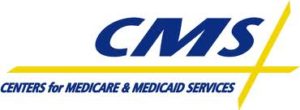Sequestration Could Hit Southeastern PA Hospitals Hard
Hospitals in southeastern Pennsylvania could lose $50 million in patient revenue a year if the scheduled sequestration of federal spending takes effect on March 1.
At that time, all Medicare payments to hospitals would be cut two percent.
In addition, hospitals in that region could lose another $41 million from a comparable cut in National Institutes of Health (NIH) spending.
Safety-net hospitals located in southeastern Pennsylvania would suffer a significant proportion of both of these cuts. Members of the Safety-Net Association of Pennsylvania (SNAP) located in this region include the Albert Einstein Medical Center, Hahnemann University Hospital, the Hospital of the University of Pennsylvania, Pennsylvania Hospital, Penn Presbyterian Medical Center, St. Christopher’s Hospital for Children, The Children’s Hospital of Philadelphia, and Thomas Jefferson University Hospital.
To learn more about how sequestration could affect one group of Pennsylvania safety-net hospitals, see this Philadelphia Inquirer article .
.







